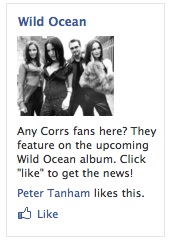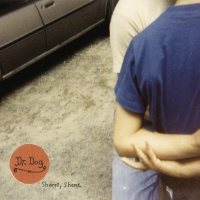Social media marketing has its challenges. At Oniracom, we navigate these challenges by employing a team of experts dedicated to providing the most engaging campaigns for clients. Our Community Management team works on behalf of clients to brainstorm and craft campaigns aimed at engaging the client’s audience in creative new ways. Our goal is to provide small and medium business owners with actionable advice for overcoming the challenges of social media marketing using the assets that are currently available.
 How does the entire world stay in contact every second of every day?? The internet. Not a new concept in itself but a bold move has been made in terms of how people on this planet perform transactions with each other, locally and internationally. From peer-to-peer transactions to official business transactions, Bitcoins are the new electronic currency that is taking the world by storm.
How does the entire world stay in contact every second of every day?? The internet. Not a new concept in itself but a bold move has been made in terms of how people on this planet perform transactions with each other, locally and internationally. From peer-to-peer transactions to official business transactions, Bitcoins are the new electronic currency that is taking the world by storm.
CATCH THE BUZZ AT ONIRACOM

Peter Tanham of Amp Music Marketing writes, “When we start working with any musician, two of the most important goals we start with are:
- 1.) Build a strong mailing list
- 2.) Build a popular Facebook page
Fans are going to be more comfortable interacting with the artist through these mediums, and they are also the ones that drive the most sales.”
Highlights from this article include:
The importance of Facebook Ads
Implementing effective Facebook Ads
1.) If You Like Those Guys… it’s called a “power play,” pick musicians that are similar to your style and pay to be played to their fans.
2.) Building A Good Landing Page: make sure your Facebook ad redirects them to a customized landing page which will encourage them to click the “like” button with some incentive to hear or get your music. Make sure it is the most similar sounding music to the artist you referred to in the “power play.”
3.) Target Your Ads… and run multiple campaigns!
Read More… Post Comment4.) Ask Questions. Encourage Clicks and Likes - (reference pseudo ad image on the left).
Facebook event pages have been under construction for quite a while, forcing our events to go everywhere that they are not supposed to be which has become rather frustrating for many people in the social media department. But, it appears that the Facebook gods have worked out the kinks and have successfuly launced a new version of Facebook events.

Read More… Post Comment
 Everyone knows (at least we hope) that as an Artist, building a solid email list is one of the most important things you can do to build and maintain your relationship with your fans.
Everyone knows (at least we hope) that as an Artist, building a solid email list is one of the most important things you can do to build and maintain your relationship with your fans.
A sound email list will turn your current fan base into an extremely solid one. The relationship that you foster with your fans, keeping them up to date on the latest news and them getting to know you even better is what’s going to build their loyalty and help you become even more successful.
Oniracom recently created and implemented an email list marketing campaign to increase the number of subscribers for G. Love and Special Sauce.
When designing the campaign we made sure we followed these 3 simple rules:
- Give fans incentive to sign up to the mailing list
- Promote the mailing list; feature it everywhere to increase it’s visibility
- Keep it simple for fans to sign up; don’t make it too complicated
By employing these 3 tactics and using a little Oniracom creative magic, we were able to grow G. Love’s mailing list numbers at a phenomenal rate. As might be expected, the mailing list continues to grow at this rate.
The case study below details our strategy and the step-by-step process we used to create this unique campaign. This case study among many others can also be found on our website - www.oniracom.com
Permalink Post Comment
2/9/10 UPDATE: Dr. Dog was about to hit 20,000 fans on Facebook (solely credited to the hard work and promotion from their original fans), and then they decided they were going to give the exclusive release of the song to Stereogum.
Yes, they will reach their end goal of getting 20,000 fans, but they didn’t reward their Facebook fans whatsoever. Bad practice in my opinion.
The indie-rock/soul band Dr. Dog has made a deal with their fans: Get us to 20,000 fans on Facebook, and we’ll let you hear the first track off the new album.
When they originally posted this, they were around 7,000 fans on Facebook, so they were asking of a pretty big feat. Each fan needed to convince two of their friends to become a fan of Dr. Dog.
Two weeks after posting their proposition, they had doubled their Facebook fans, and are quickly continuing to grow.
Their fans went above and beyond in order to spread the word:
One thing you need to know: this won’t work for every band.
Dr. Dog is one of those bands that is known for having a small, but incredibly devoted fan base (another example: Delta Spirit). It’s much better to have 10 super fans over 100 regular fans. Their fans probably like other indie-underground bands, and they are probably the friend in the group that is always listening to a new band. Now they have a payoff for spreading the word: they get to hear the new single first. The fans are the most important thing you have. Give them incentive, and let them do the work for you.
Permalink Post CommentSo many artists, record labels, and management companies are struggling to adapt with the industry online. The ones who have not adapted have collapsed in on themselves, but those adapting are trying to stay afloat in what we can call the new music economy (coined by Greg Rollett of genyrockstars.com).
One of the biggest “issues” that music companies are having in the new music economy is piracy and unauthorized copying. As Andrew Dubber of New Music Strategies bluntly puts it:
The single most effective way to stop people from copying your music is to stop making music. If that’s not an option (and why would it be?) then accepting that this is the world in which we live is a good start towards successfully negotiating the new media environment.
This is the only way selling music works:
Fans will Hear—> Like—> Buy your music
I could explain this in my own words, but instead I’ll paste in this reference from a blog post by Andrew Dubber to explain it. This explains exactly why you need to quit worrying about piracy to survive in the new music economy:
Music is pretty much unique when it comes to media consumption. You don’t buy a movie ticket because you liked the film so much, and while you might buy a book because you enjoyed reading it so much at the library, typically you’ll purchase first, then consume…
But music is different - and radio proves that. By far the most reliable way to promote music is to have people hear it. Repeatedly, if possible - and for free. After a while, if you’re lucky, people get to know and love the music. Sooner or later, they’re going to want to own it…
But either way - whether it’s a pop tune, a heavily political punk album, or an experimental, avant-garde suite - the key is very simple: people have to hear music, then they will grow to like it, and then finally, if you’re lucky, they will engage in an economic relationship in order to consume (not just buy and listen to) that music…
That’s the order it has to happen in. It can’t happen in any other order. There’s no point in hoping that people will buy the music, then hear it, then like it. They just won’t.
To read the rest of the article, click ‘Read More…’
Read More… Post Comment During the summer of 2009, Lenny Kravitz embarked on a huge European Tour in support of his “Let Love Rule 20(09)†re-release. We leveraged some serious social media tactics through the use of Facebook, Twitter, MySpace, YouTube, Kyte, iLike and more. One of the most notable social media campaigns that we created used a very powerful Facebook tool: photo-tagging.
During the summer of 2009, Lenny Kravitz embarked on a huge European Tour in support of his “Let Love Rule 20(09)†re-release. We leveraged some serious social media tactics through the use of Facebook, Twitter, MySpace, YouTube, Kyte, iLike and more. One of the most notable social media campaigns that we created used a very powerful Facebook tool: photo-tagging.
We took advantage of this Facebook feature and grew Lenny’s presence exponentially on Facebook. The case study below details our strategy and the step-by-step process we used to create this unique campaign. This case study among many others can also be found on our website - www.oniracom.com
Permalink Post Comment It’d be nice if all you had to do was send CDs out to the big magazines and they would eventually be reviewed, but this hardly happens anymore. In fact, not much gets done by blindly sending CDs to people—we get tons of them each month, and yes although we do listen, we have no context or connection for any of the bands.
It’d be nice if all you had to do was send CDs out to the big magazines and they would eventually be reviewed, but this hardly happens anymore. In fact, not much gets done by blindly sending CDs to people—we get tons of them each month, and yes although we do listen, we have no context or connection for any of the bands.
Take an approach like one of the artists we signed to our record label: Marc B. He heard our company name and did some research to find out how to get in touch with us. He found an address and a phone number. Advice: pick the phone number. Make a connection with whoever you meet on the phone, and ask them if you could send them your CD. When Marc’s CDs arrived, it wasn’t addressed to “Oniric Records” like all of the others, it was addressed to a single person, who was expecting his CDs. The package was immediately delivered to him, and the listener had a context and connection for who sent him the package. At the very least, it had his name on it, so he was going to pay more attention.
Take the extra step to make a relationship with the company you are going to send your CD to. Don’t address anything to “Demos” or “(Company Name)” if you want your music to be taken seriously. You worked too hard on your CD for it to be stacked in a pile with the rest of the demos.
Also, before you start sending out your CDs to Rolling Stone and SPIN, gather some press in your local market. For a smaller city like ours in Santa Barbara, our biggest publication, The Santa Barbara Independent, comes out with an annual comprehensive list of bands in Santa Barbara. You can check it out here. See if your local publication has one of these, and make sure you are included. If they don’t have one, suggest it, but at the very least, make a connection and address your CD to a person, not a company.
Permalink Post Comment
Categories
-
183 POSTS
-
153 POSTS
-
109 POSTS
-
87 POSTS
-
76 POSTS
-
54 POSTS
-
46 POSTS
-
44 POSTS
-
38 POSTS
-
37 POSTS
-
29 POSTS
-
29 POSTS
-
27 POSTS
-
28 POSTS
-
27 POSTS
Popular Posts
Archives
-
1 POST
-
3 POSTS
-
1 POST
-
3 POSTS
-
6 POSTS
-
2 POSTS
-
4 POSTS
-
4 POSTS
-
5 POSTS
-
3 POSTS
-
6 POSTS
-
1 POST
-
1 POST
-
4 POSTS
-
2 POSTS
-
6 POSTS
-
9 POSTS
-
6 POSTS
-
13 POSTS
-
9 POSTS
-
4 POSTS
-
12 POSTS
-
10 POSTS
-
6 POSTS
-
6 POSTS
-
10 POSTS
-
9 POSTS
-
7 POSTS
-
12 POSTS
-
7 POSTS
-
9 POSTS
-
6 POSTS
-
5 POSTS
-
10 POSTS
-
12 POSTS
-
6 POSTS
-
12 POSTS
-
11 POSTS
-
12 POSTS
-
11 POSTS
-
9 POSTS
-
11 POSTS
-
14 POSTS
-
10 POSTS
-
10 POSTS
-
5 POSTS
-
2 POSTS
-
6 POSTS
-
6 POSTS
-
2 POSTS
-
5 POSTS
-
2 POSTS
-
5 POSTS
-
8 POSTS
-
6 POSTS
-
7 POSTS
-
9 POSTS
-
16 POSTS
-
6 POSTS
-
9 POSTS
-
7 POSTS
-
6 POSTS
-
9 POSTS
-
10 POSTS
-
14 POSTS
-
8 POSTS
-
12 POSTS
-
4 POSTS
-
9 POSTS
-
11 POSTS
-
20 POSTS
-
8 POSTS
-
11 POSTS
-
8 POSTS
-
15 POSTS
-
8 POSTS
-
4 POSTS
-
8 POSTS
-
11 POSTS
-
20 POSTS
-
12 POSTS
-
1 POST
-
4 POSTS
-
1 POST
Authors
-
125 POSTS
-
65 POSTS
-
46 POSTS
-
44 POSTS
-
39 POSTS
-
18 POSTS
-
18 POSTS
-
17 POSTS
-
13 POSTS
-
12 POSTS
-
11 POSTS
-
10 POSTS
-
10 POSTS
-
9 POSTS
-
9 POSTS
-
9 POSTS
-
8 POSTS
-
8 POSTS
-
8 POSTS
-
7 POSTS
-
7 POSTS
-
7 POSTS
-
6 POSTS
-
6 POSTS
-
6 POSTS
-
6 POSTS
-
6 POSTS
-
5 POSTS
-
5 POSTS
-
5 POSTS
-
4 POSTS
-
4 POSTS
-
4 POSTS
-
4 POSTS
-
4 POSTS
-
3 POSTS
-
3 POSTS
-
3 POSTS
-
3 POSTS
-
3 POSTS
-
3 POSTS
-
2 POSTS
-
2 POSTS
-
2 POSTS
-
2 POSTS
-
2 POSTS
-
2 POSTS
-
1 POST
-
1 POST
-
1 POST
-
1 POST
-
1 POST
-
1 POST
-
1 POST




